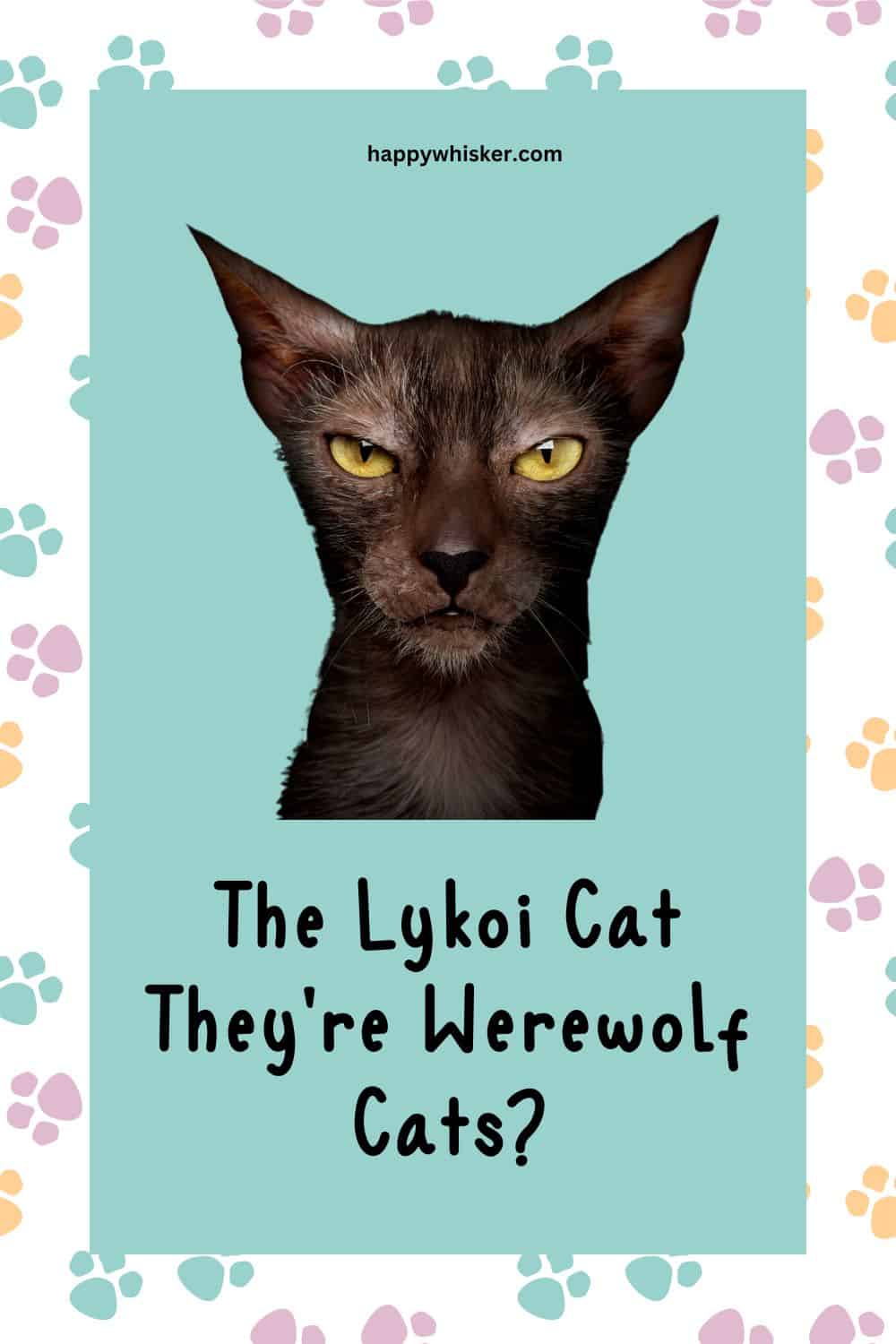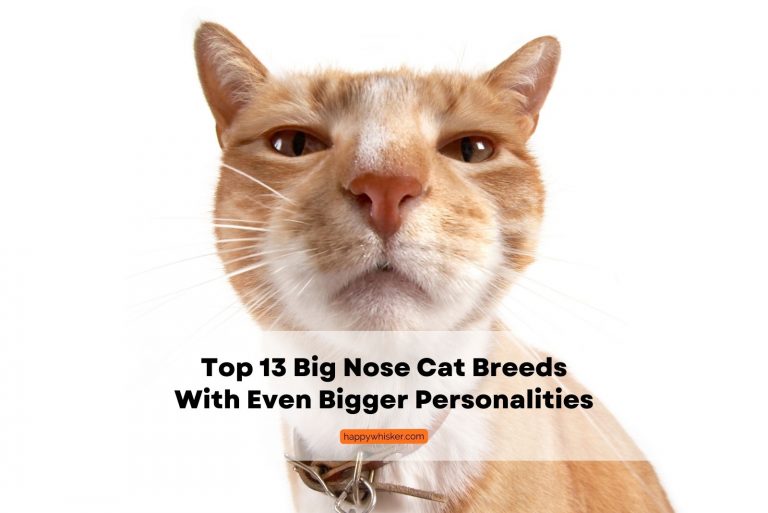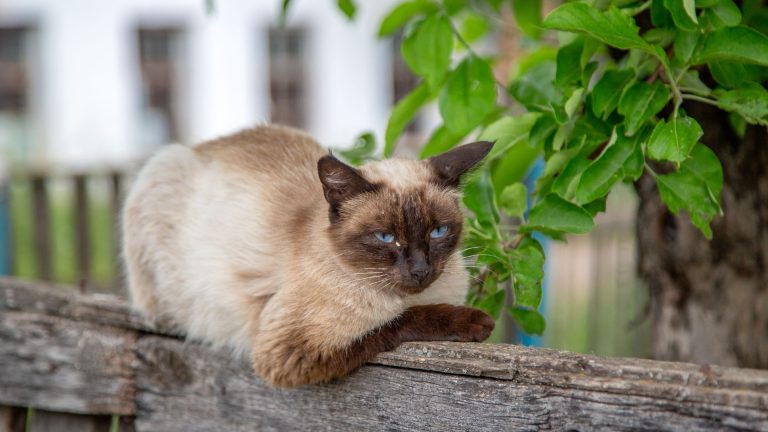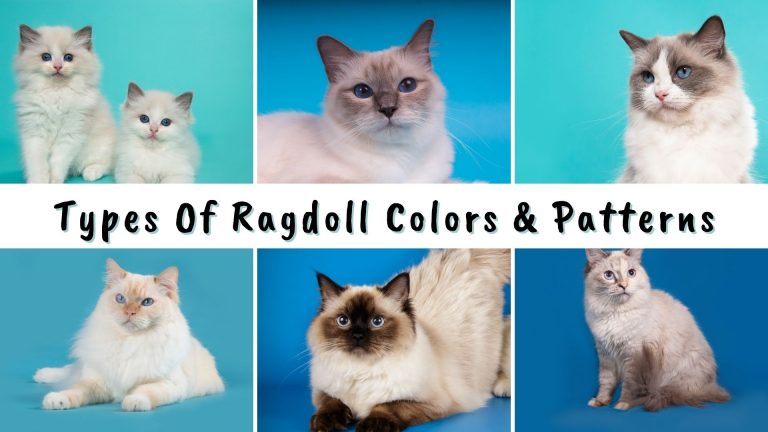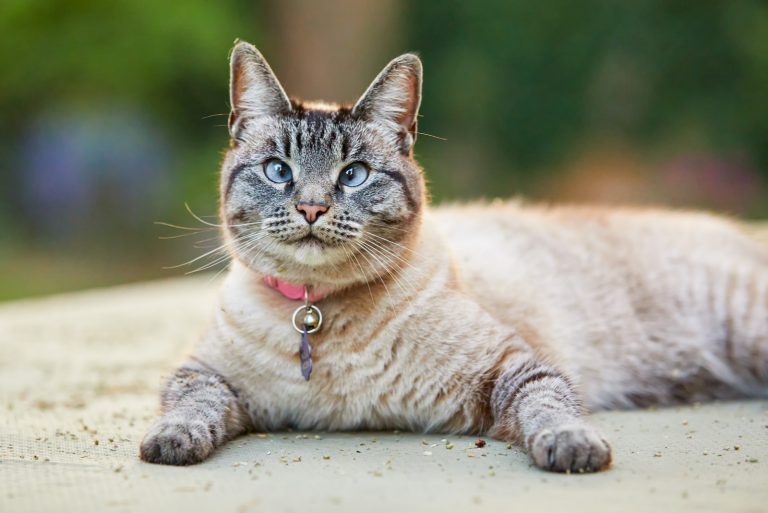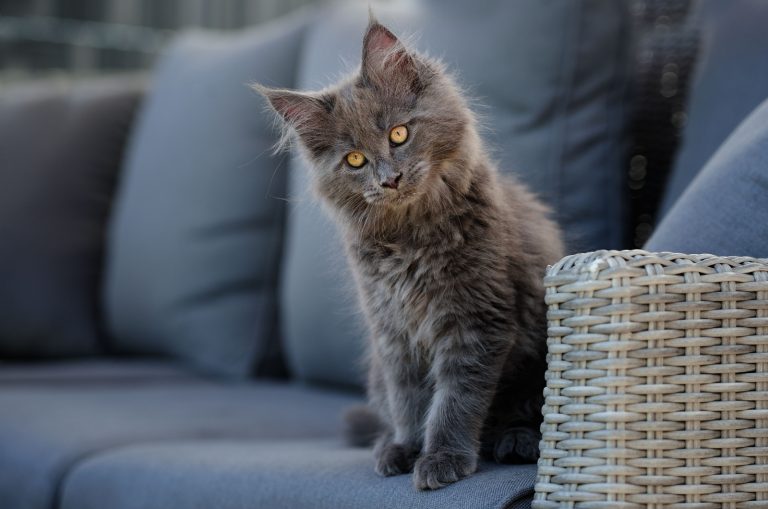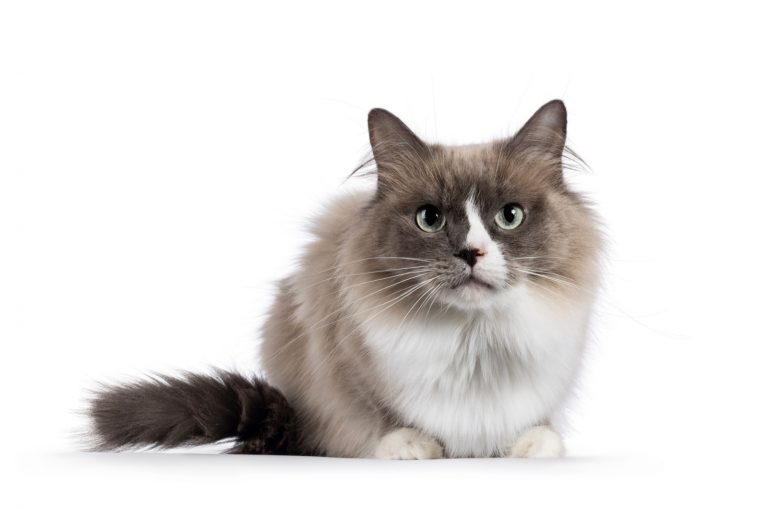Meet The Lykoi Cat Breed
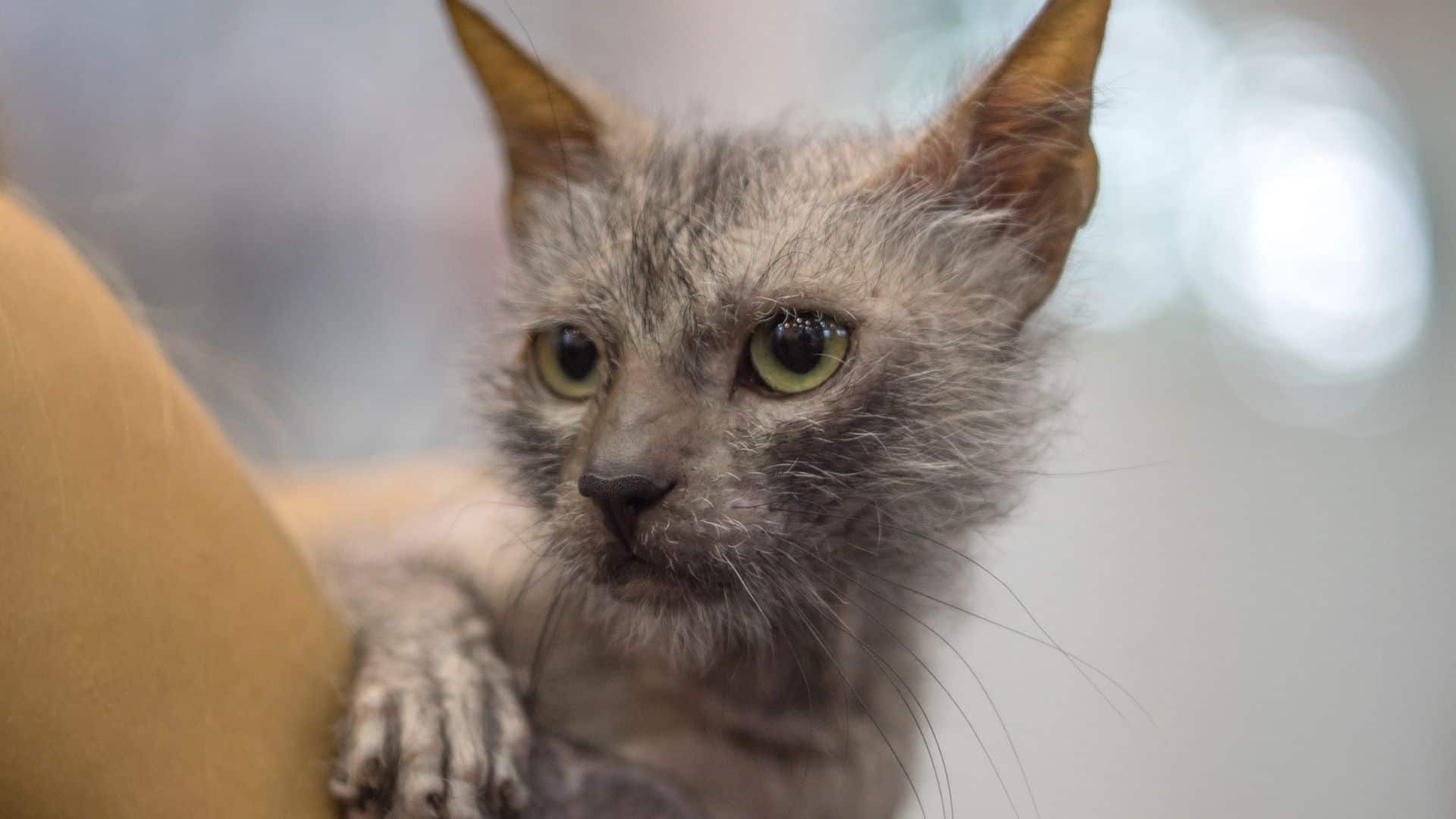
Have you ever heard of the werewolf cat? It’s not some mysterious tale or legend. The werewolf cat, as it’s commonly called, is a recognized cat breed known as the Lykoi.
The werewolf cat gets the name from its extraordinary appearance, which reminds people of werewolves. The Lykoi cat has gained popularity and earned its name, which means “wolf” in Greek, due to its partially hairless coat and unique “roan” pattern.
The Lykoi cat even has the power to change its skin and coat colors! Don’t believe me? Read on and find out all about it.
Lykoi Cat Breed Info
[table id=297 /]
Origin
Feral cats were mostly the ones with this distinctive coat pattern. Patti Thomas, Johnny Gobble, and Johnny’s wife Brittney were the first people to breed a Lykoi kitten. They produced the first litter of Lykoi cats in 2011, the so-called werewolf kittens.
The International Cat Association (TICA) approved and recognized the Lykoi cat as a breed in 2012, and they approved their championship status in 2017.
Following that, the Cat Fanciers’ Association (CFA) also recognized the Lykoi cat as a breed.
What The Lykoi Breeders Are Saying
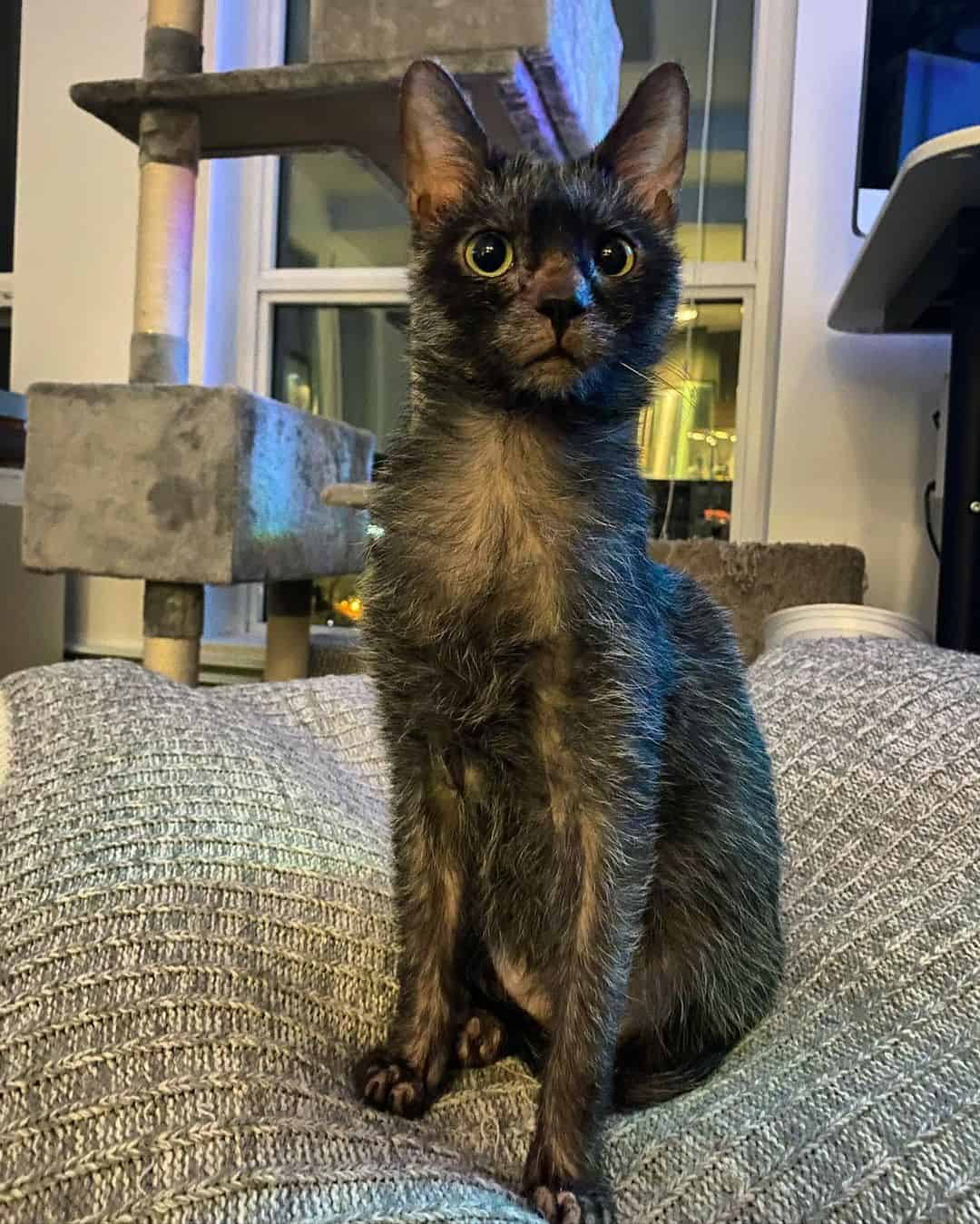
During that time, breeders started breeding Lykoi cats, and by the time they got their championship status, the breed had come a long way.
Lykoi cats first started from strays and feral cats. Their appearance is a naturally occurring genetic mutation that can happen to any domestic cat from time to time but extremely rarely.
Genetics
This gene can appear in different forms and in cats all over the world; however, only 17 of these natural mutations have been accepted into the breeding program.
Many cats like Lykoi were taken to shelters and rescue centers because people didn’t know how truly unique they were.
Continuous Research
These cats also have scientists working on their genetics. They are continually working on finding the link between the recessive gene and Lykoi cat’s color, pattern, fur, and the possibility of a hairless pattern.
Another thing that is worth praising about the Lykoi is their championship status and TICA registry, which established them as a breed recognized by one of the leading cat registries.
Today, the Lykoi is a healthy and beautiful cat breed that most people admire and adore.
Characteristics Of The Lykoi Cat
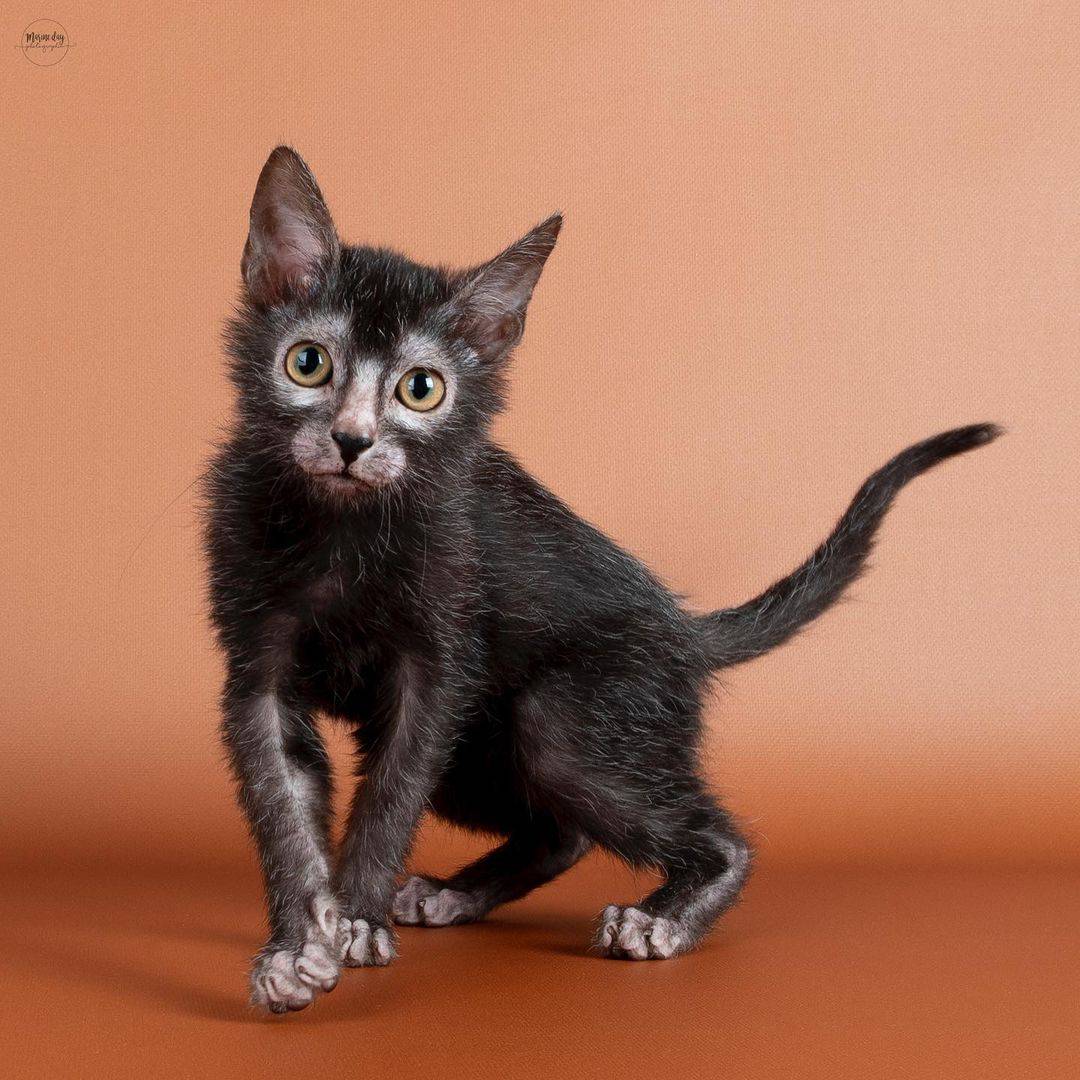
Lykoi cats have an unusual appearance; it’s pretty clear why they’re commonly called wolf cats. Other than their werewolf appearance, the Lykoi cats are one of the most unique cat breeds when it comes to visual appearance overall.
Even though they look wild, they are sweet, loving, playful, and friendly kitties.
Size & Appearance
Lykoi cat is a medium-sized cat that has a slender, muscular body and a wedge-shaped head with hairless skin around its eyes, nose, muzzle, and the backs of the ears. Some adult Lykois can even be entirely hairless.
Because of this, they are frequently confused with Sphynx cats, even though the two breeds have no genetic connection.
Despite its rough appearance, the Lykoi’s coat is fine, short, and fairly soft. Lykoi cats with a black roan coat pattern with a slight silvery shade are the most common.
The Lykoi cat doesn’t have an undercoat, it only has thin top hairs, which is why they look shabby to most people. Their eyes are almost round in shape and either amber or green in color.
Despite their fine, short coats, Lykoi cats are not considered a hypoallergenic cat breed. Lykoi shed heavily, sometimes more than a traditional domestic shorthair, and kittens are born with a full coat.
The breed evolved from naturally occurring mutations found in domestic cats. Kittens are actually born with hair and begin to lose it when they’re approximately one or two weeks old.
They can shed completely, i.e. be completely hairless, before their fur grows back. In case of allergies, spend some time with a Lykoi kitten before bringing one home to see if your allergy symptoms are triggered.
Coat Patterns & Colors
Lykoi cats have a unique roan coat pattern, which is a mixture of typical colors with white and hairless patches on their body.
There are cats that share similar coat characteristics, but to be a Lykoi, the cat needs to have the roan color pattern and the partial hair coat at the same time. Lykoi kittens are born with fur, and they resemble any other domestic kitten.
However, after approximately two weeks, they lose their fur and start to look fluffy. Some kittens lose their entire coats, and after a couple of weeks, they get their ‘Lykoi coats’.
When the kittens are about three or four months old, they get their full Lykoi appearance. The Lykoi coat appears bristle, but it’s actually very soft. I experienced it myself once when I encountered a Lykoi cat at a shelter.
I was helping out and getting a chance to pet a Lykoi right before the guy came to adopt it. This Lykoi was cute and cuddly, and they said that he was playful as well.
The coat of a Lykoi cat can also change after some time. It can happen that they shed their entire coat, and when it grows again, it might be different, with more or less hair on the cat’s body.
The roan color of your Lykoi might also change, it might be more or less white. Some Lykois are also more naked, and some can be almost completely covered in fur. Their nose and ears are, however, always hairless, and that never changes.
These werewolf cats are most commonly black, but they can appear in many other colors as well.
Personality
The Lykoi cat breed is incredibly friendly and laid-back, which is why these cats are known to get along very well with people, cats, and cat-friendly dogs.
Lykoi cat behavior is typically quite playful, but they do occasionally wander off on their own for extended periods of time. Lykois are gentle, loving, cute cats who are also playful and energetic.
They are open to strangers but may be unapproachable and shy around them at the beginning, as they prefer the company of their favorite human friends and may cling to them when other people are no longer present.
These cats are also quite intelligent and can be extremely vocal when the mood calls for it. Lykoi cats love playing with their owners and other cats as well. They’re highly curious, playful, and friendly.
After all their daily activities, they love to lay beside you and let you cuddle them to sleep.
Behavior
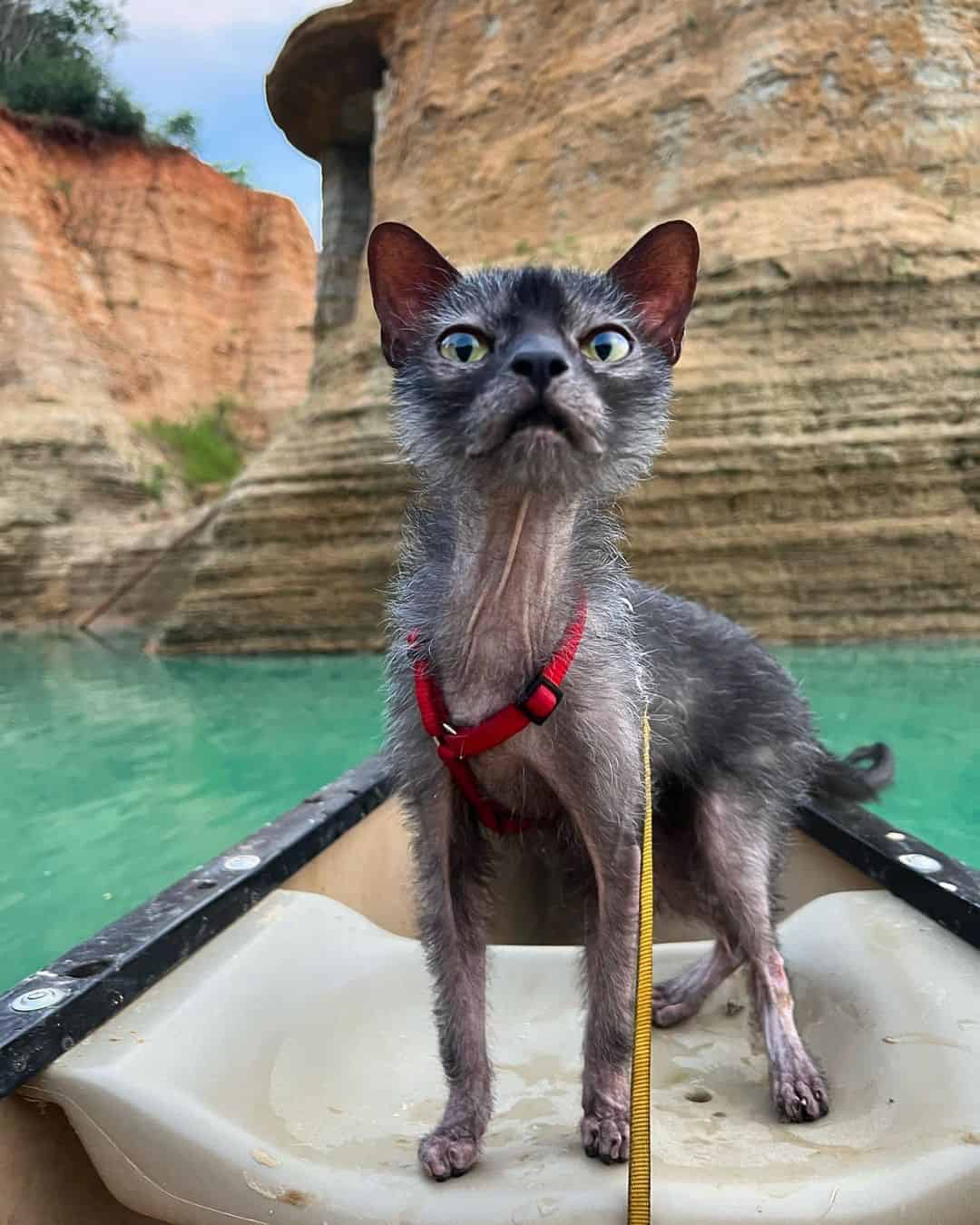
The Lykoi’s behavior differs slightly from that of other cats. They, like other cats, enjoy having their owners around, they enjoy being petted, and they enjoy playing with people. They are not necessarily lap cats.
They will sit with you for a while, but then they will become interested in something else and get up to go sniffing and exploring. Lykoi cats are also popular for “watching over” the kids in the house or even other cats.
They act as if they are the ruler of the house and like it’s their responsibility to keep an eye on everything.
Lykoi cats love to play fetch! They can quickly learn how to use a toilet, stand on their back legs, and use their front legs as hands to grab or reach for objects.
Lykoi cats are brimming with energy that seems to fade quickly only to be replenished. When there are several Lykoi cats in a room, they tend to play and explore together.
Because of their behavior, they have been dubbed a more dog-like breed than many other cat breeds. However, they are still cats, and they will spend the majority of their lives acting like most other domestic cats.
Health
Because the Lykoi is still a new breed, it can’t be concluded what their genetic structure is like exactly and whether there are any possible health problems they are prone to.
The best thing to do is to have them checked for all of the common cat issues, such as FIP or heart problems. Check for kidney disease also, as it is the most common disease that we see in cats, as well as arthritis.
Maintain an open line of communication with your vet about your Lykoi cat, continually talk to the vet and always address any issues or any unusual cat behavior you notice at home.
Grooming
Lykoi cats are special and, in many ways, seem different from other domestic cats, but they don’t actually have any special care requirements. These cats originated from domestic cats, so they shouldn’t be treated any differently.
Lykoi cats don’t have special nutrition demands or litter box needs, they require the same stuff your ‘regular’ domestic cat does. However, when it comes to bathing, there are some things you have to do that are slightly different.
Lykoi cats, as I’ve mentioned, have a partially hairless coat, so they produce natural oils on their ears and nails. This isn’t something you deal with every day, but simply cleaning their ears and wiping their nails with a clean cloth does the trick.
Lykoi cats also have more exposed skin than most other domestic cats, so they need to be kept safe from too much sunlight so as not to get sunburns and also protected from cold weather.
Activity & Exercise
Lykoi cats require daily entertainment and exercise. You’ll need to provide them with many cat toys and sources of entertainment, especially when you’re not around.
The good news is that these cats aren’t prone to separation anxiety, so it’s ok if they’re left alone for some time during the day.
Average Price Of Lykoi Cats
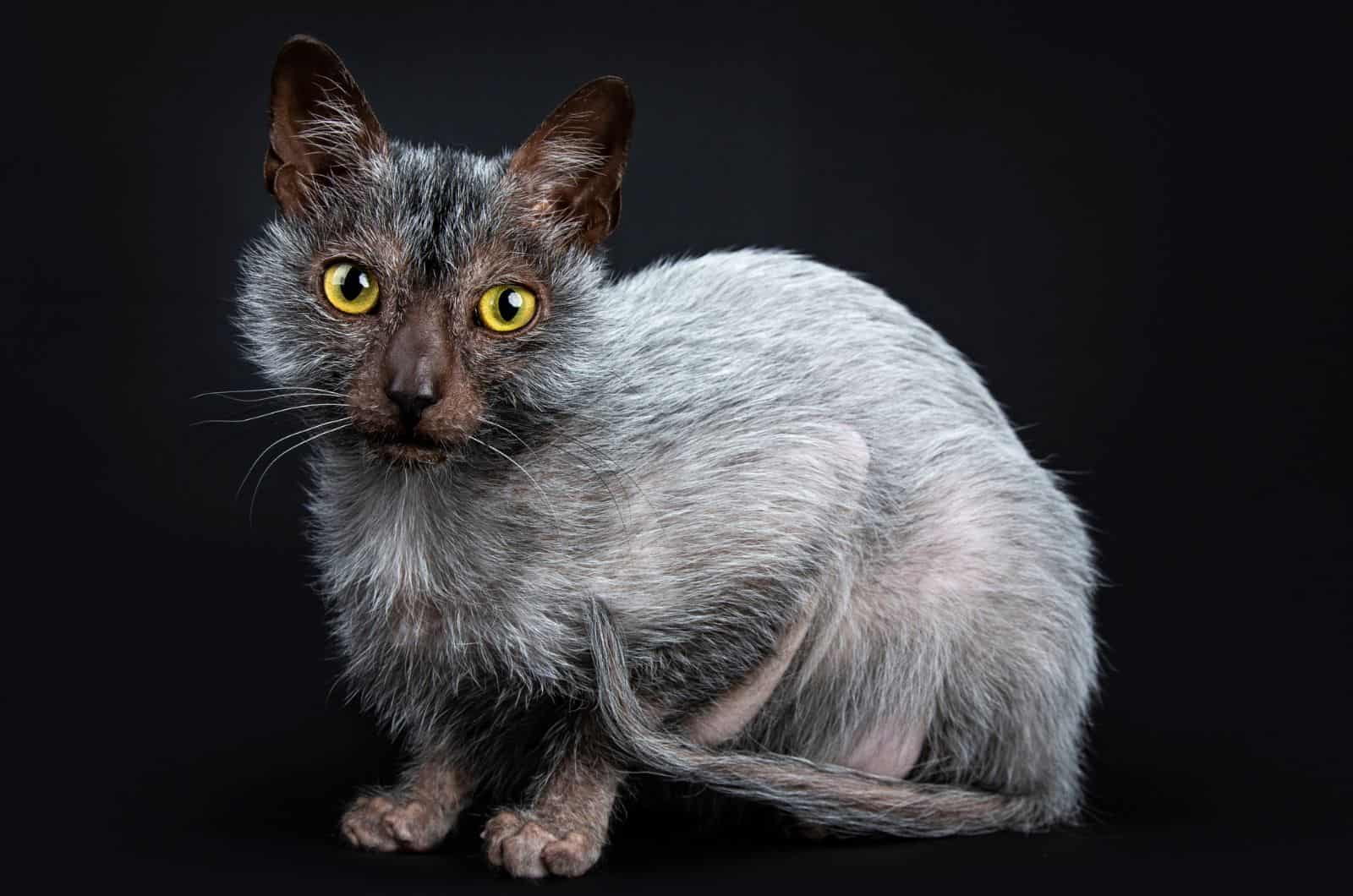
The average price of Lykoi kittens ranges from $1500 to $2500, which might sound too much, but the breeding process of Lykoi cats needs to be careful, and it’s not easy to get the werewolf look and all the traits that a Lykoi cat needs to possess.
However, if you’re keen on adopting a Lykoi cat but can’t afford to pay this much money for it, you might just get lucky enough and find one in your local shelter or a rescue center.
Interesting Lykoi Facts
🐾 Lykoi cats are a rare breed, and there are less than a hundred show Lykoi cats.
🐾 Lykoi comes from the Greek word Lykos, which means wolf, and that’s how the breed got the name.
🐾 Lykoi cats actually date back to feral cats who had skin issues. Nowadays, they’re bred purposely for that specific pattern.
🐾 Most other cats with hairless patterns share the Sphynx gene, but Lykoi cats have their own particular hairless gene.
Final Thoughts
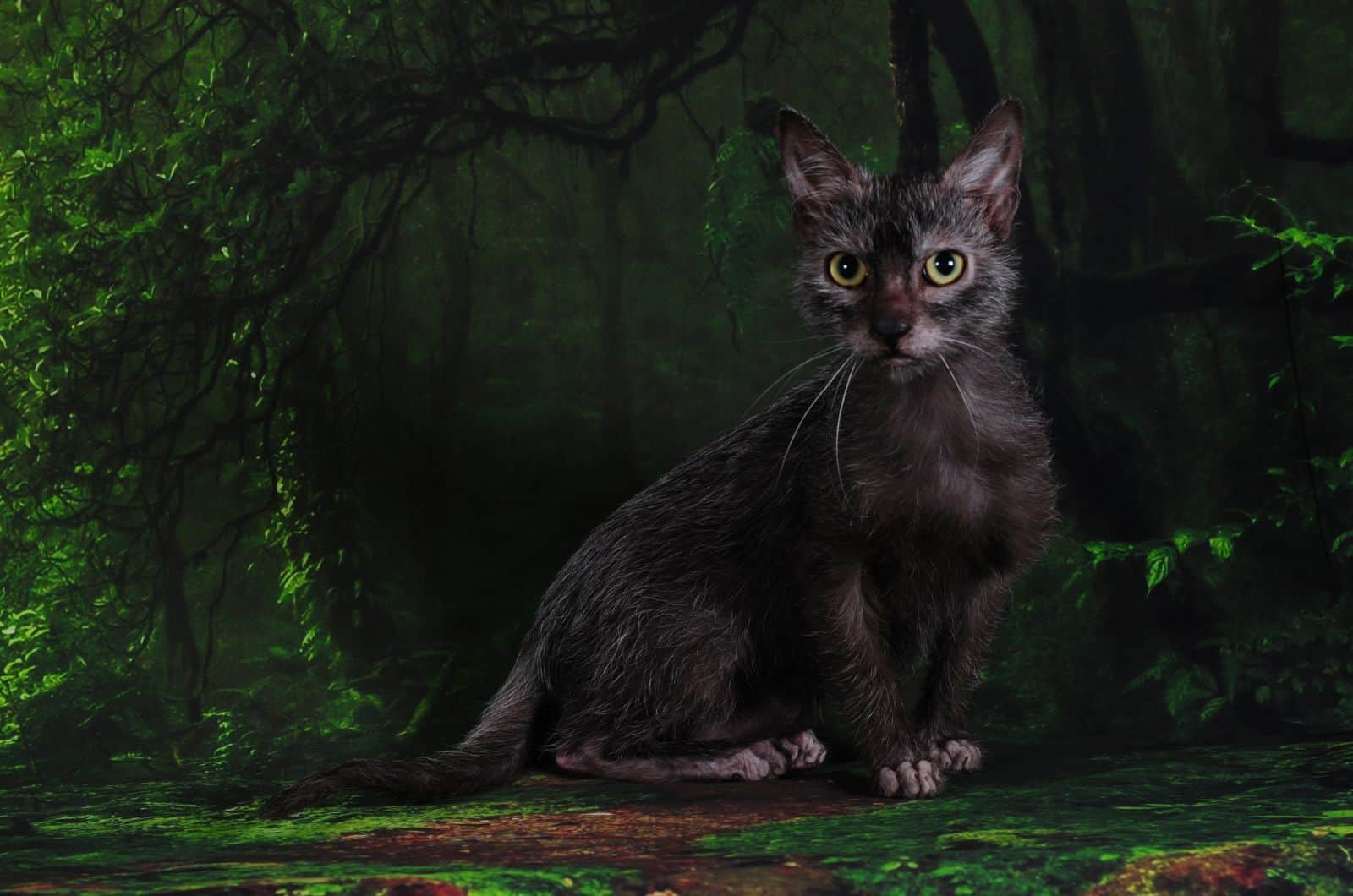
Lykoi cats will most probably become more and more popular in the future. These Halloween-looking cats are definitely going to grab the attention of werewolf fans everywhere.
Their price, however, might put some people off. But if you’re willing to pay good money for a Lykoi cat, make sure you buy from a reputable and registered breeder. After all, if you desire this particular breed of cat, what’s a few more bucks?
The Lykoi cat has great personality traits and makes a wonderful house cat. They don’t have any special requirements except for the occasional nail and ear cleaning.
If you do get a Lykoi cat, give it a name worthy of its appearance! Feel free to check out the list of black cat names below and other related articles that I believe might interest you.
Related Articles:
• 355+ Best Spiritual Black Cat Names
• 11 Dumbest Cat Breeds You Certainly Didn’t Know About
• Himalayan Siamese Cat Or Long-Haired Persian Himalayan Cat?
Like this post? Share or pin it for later!
